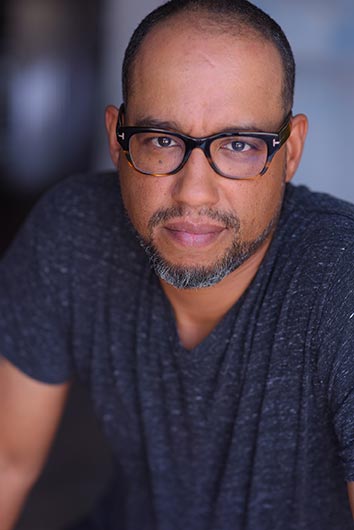Blog is part of the Whole Communities Newsletter “All Black Everything”
Long-distance running has become my sanctuary, a place where I heal and find joy amidst the complexities of life. I didn’t start running as a grand plan to overhaul my mental health but rather as a response to the turbulence that had recently settled into my life.
For over 20 years, I thrived as a theater artist, contributing to a craft that was both my passion and profession. My most recent role as the Managing Director of a Los Angeles theater company with a 42-year legacy was a dream opportunity, or so I thought. I was hired to lead this predominantly white theater company, to evolve its identity, and to lead them into a more inclusive and dynamic future. But as with many predominantly white institutions, the reality proved to be much more complex. The conflicts that arose revealed a company not yet ready to evolve, and I found myself in a position where the best and most healthy choice was to step down after just a few short months.
The aftermath of this decision left me adrift. The theater industry had shifted significantly post-COVID, and at 50, I found myself a seasoned theater professional in a dying medium. Adding to the mix was a significant life change. My partner and I decided to move in together. This move proved to be a wonderful addition to my life, but the initial adjustment took some getting used to.
Initially, running was simply a way to stay active, but it quickly became much more than that. As I began pushing myself to go further each time, I soon found that the rhythm of my feet on the pavement was doing something profound for my mental state. Running became a form of moving meditation, a way for me to focus on something tangible: my body.
When I run, my mind usually zeroes in on my pace, steps, or heart rate. I’ve become somewhat obsessed with my Garmin fitness watch, constantly checking it to ensure I hit my targets. But recently, something shifted during one of my long runs, a weekly ritual where I cover at least 10 miles. I made the conscious decision not to focus on the numbers but rather on my breathing. This subtle change opened the floodgates to an experience I hadn’t anticipated.
As I ran, something in my gut began to stir. It was a storm of emotions, brewing quietly at first, then quickly gaining strength. The next thing I knew, I had to stop running. The intensity of the feeling demanded my full attention, and as I stood there on the side of the path, I began to cry. In those tears was a cathartic release that had been building up inside me for months. I cried for the job I lost, for the theater company I couldn’t help, for the industry that had changed, and for the uncertainty of what comes next. I cried for my inner child, whose wounds are still on the mend. And for my future self, whom I hope to admire one day.
That run and the release that came with it were a turning point. It was as if all the noise, the fears, the doubts, the regrets had finally found a way out of my system, carried away by the rhythm of my breath and the steady pounding of my feet. At that moment, I realized that running had become more than just a way to stay fit; it had become a practice of mending, a way to heal the parts of myself that felt broken or lost.
Running forces me to listen to my body and to be present in a way that is both grounding and liberating. When I run, I feel confident, fast, and strong. It’s a time when I can block out all the other noise and focus on the simple act of putting one foot in front of the other. There’s a clarity that comes with that, a sense of purpose that has been incredibly comforting during this time of upheaval.
As I train for my first marathon, I’m reminded that this practice isn’t just about physical endurance. It’s about finding joy in the process, in the movement, in the breath. It’s about mending the emotional wounds that life inevitably inflicts and emerging stronger and more resilient on the other side.

Related Posts
September 30, 2024


